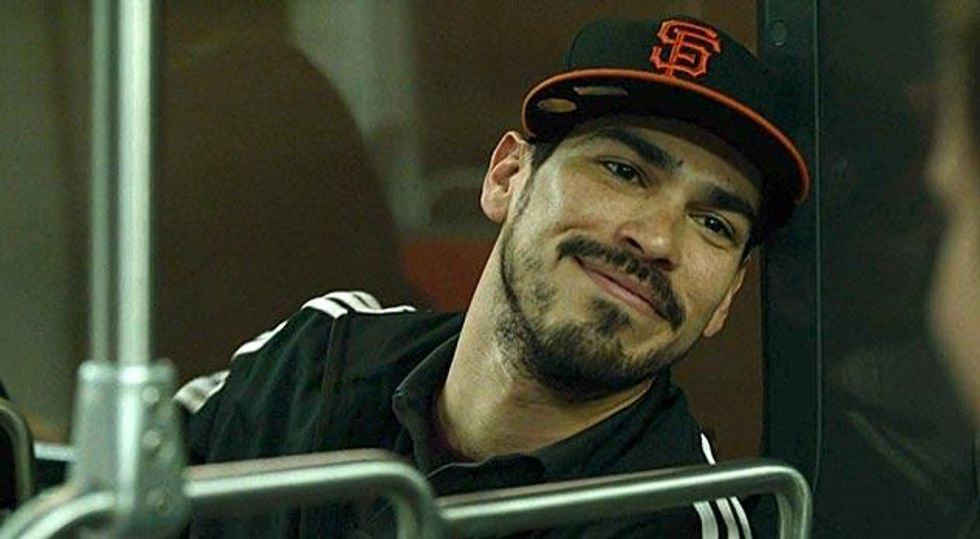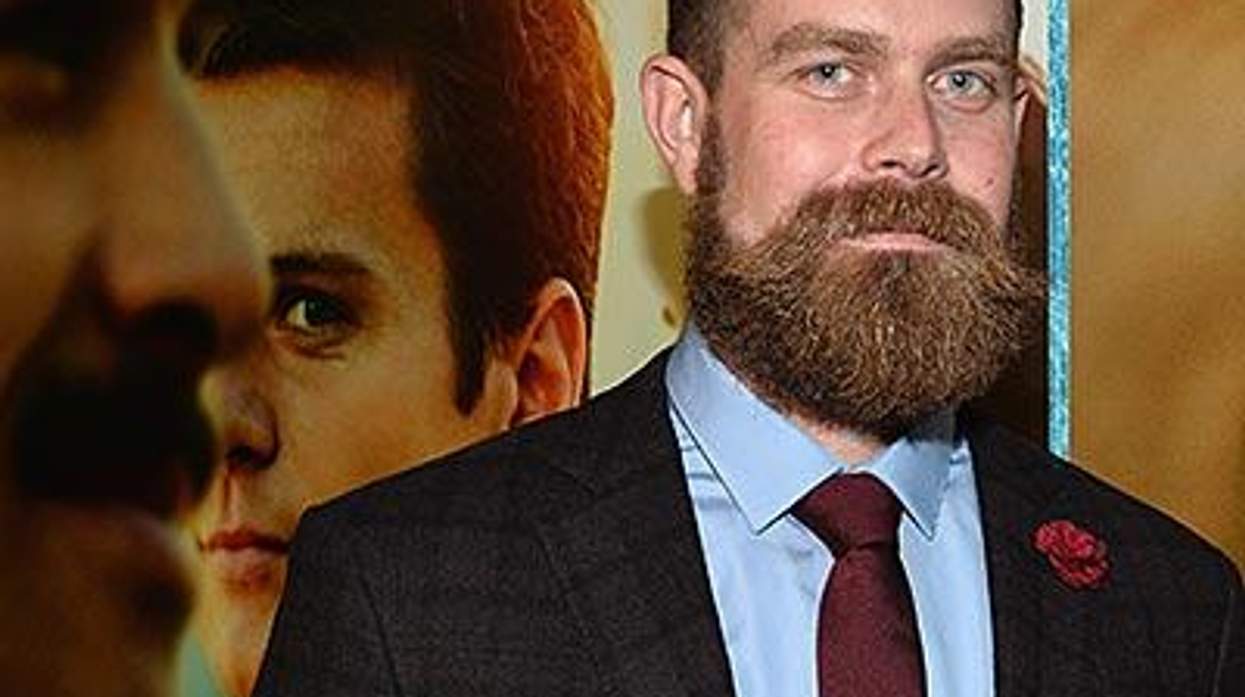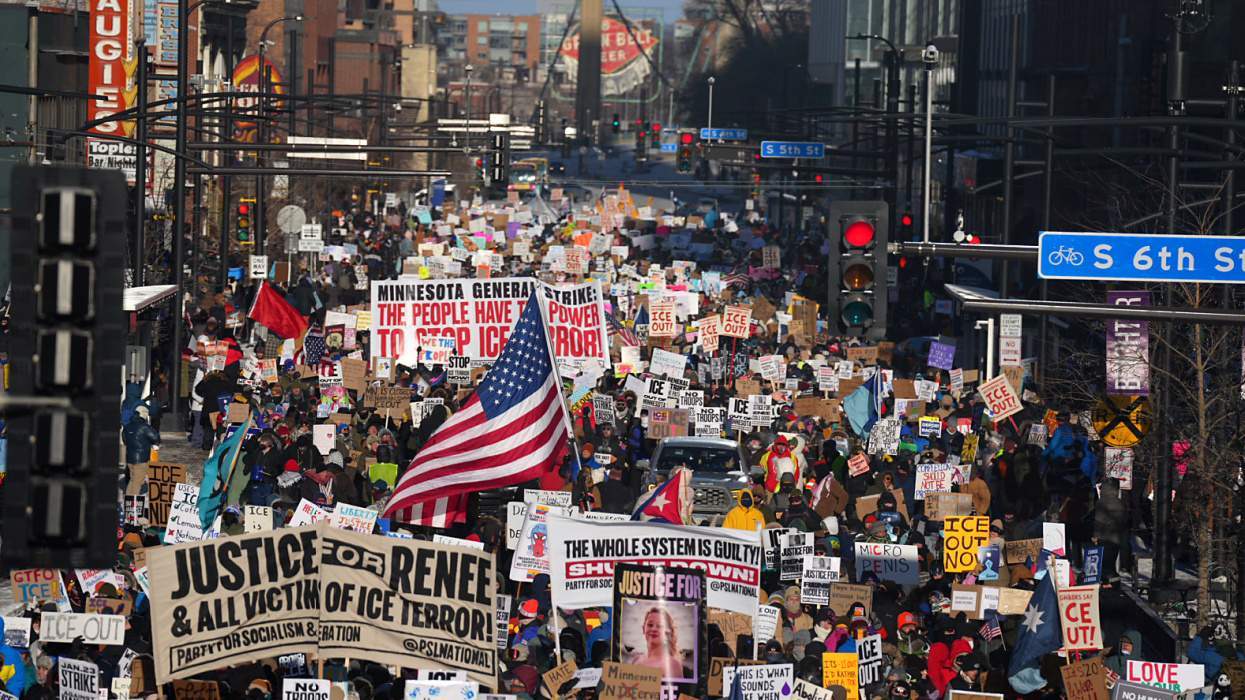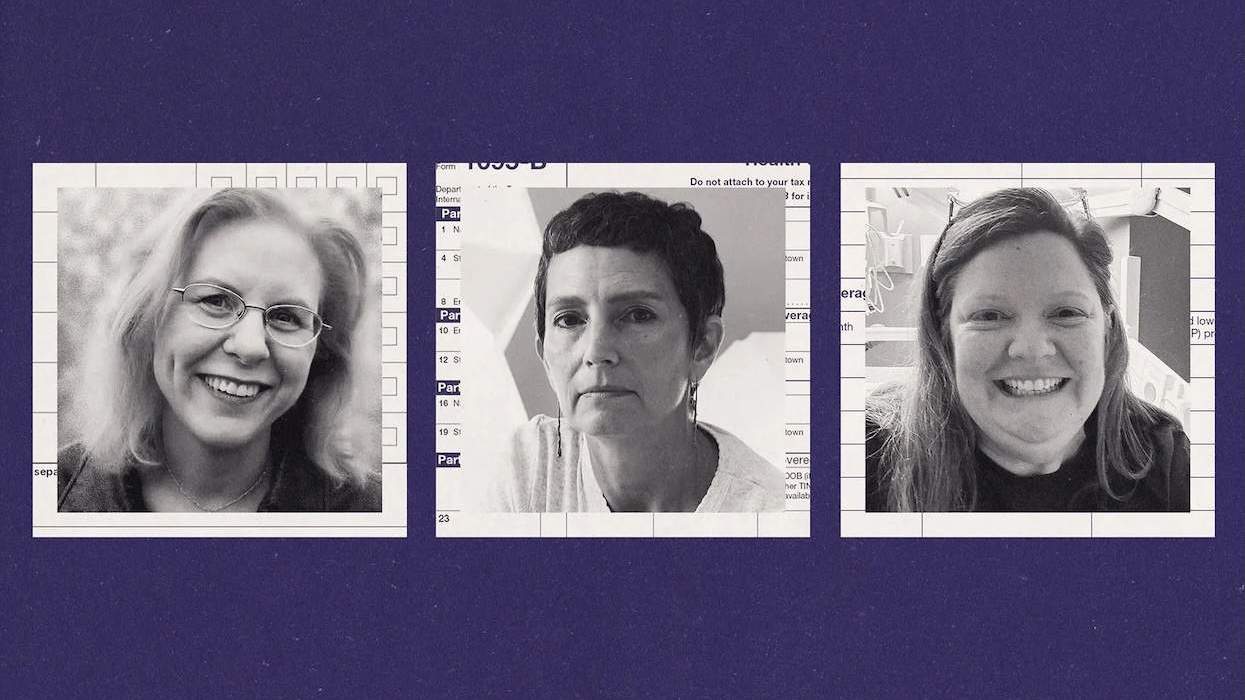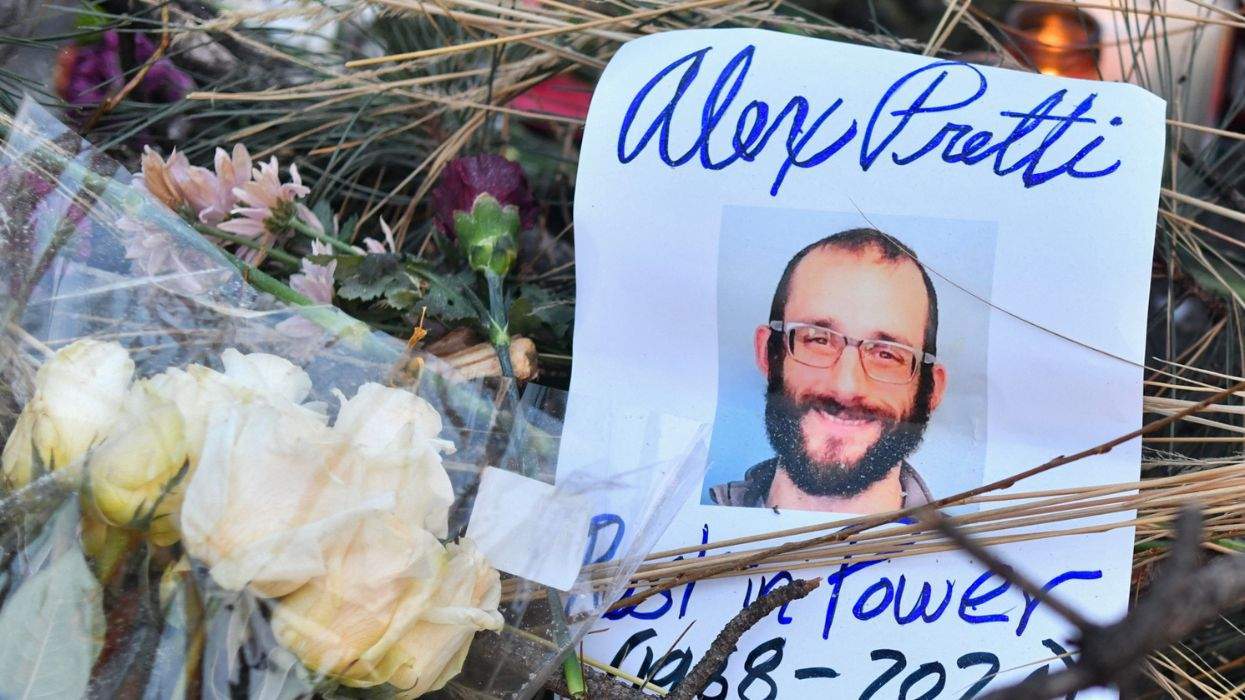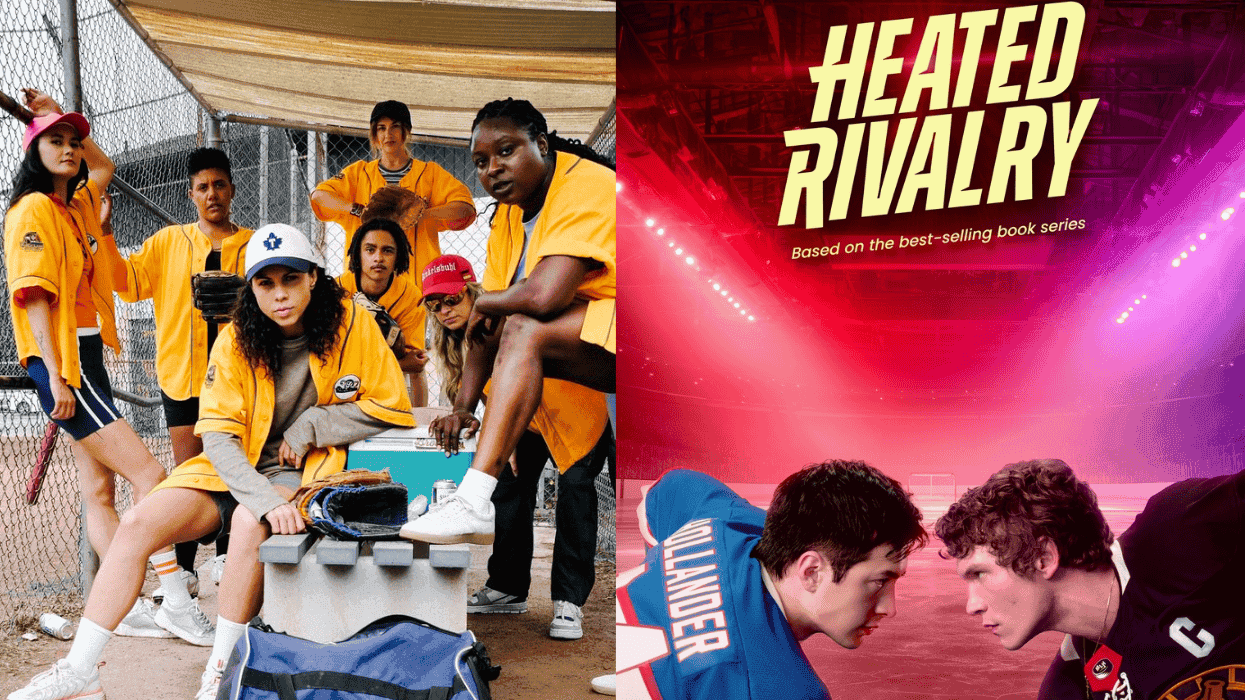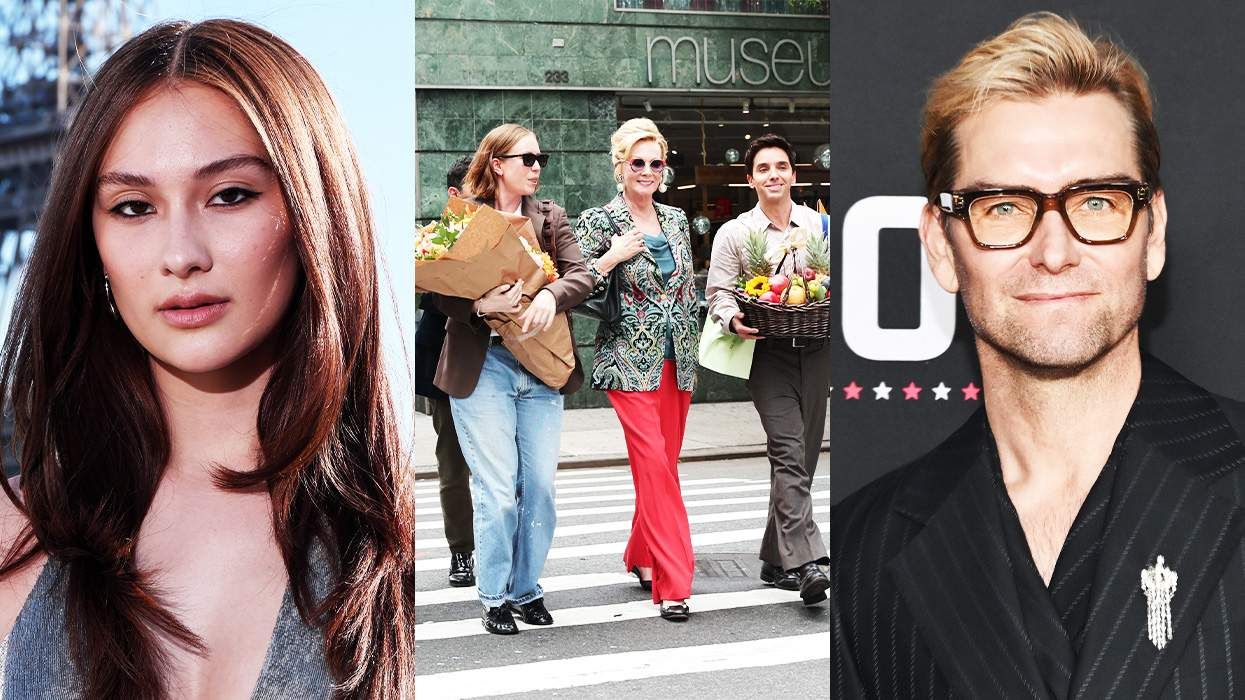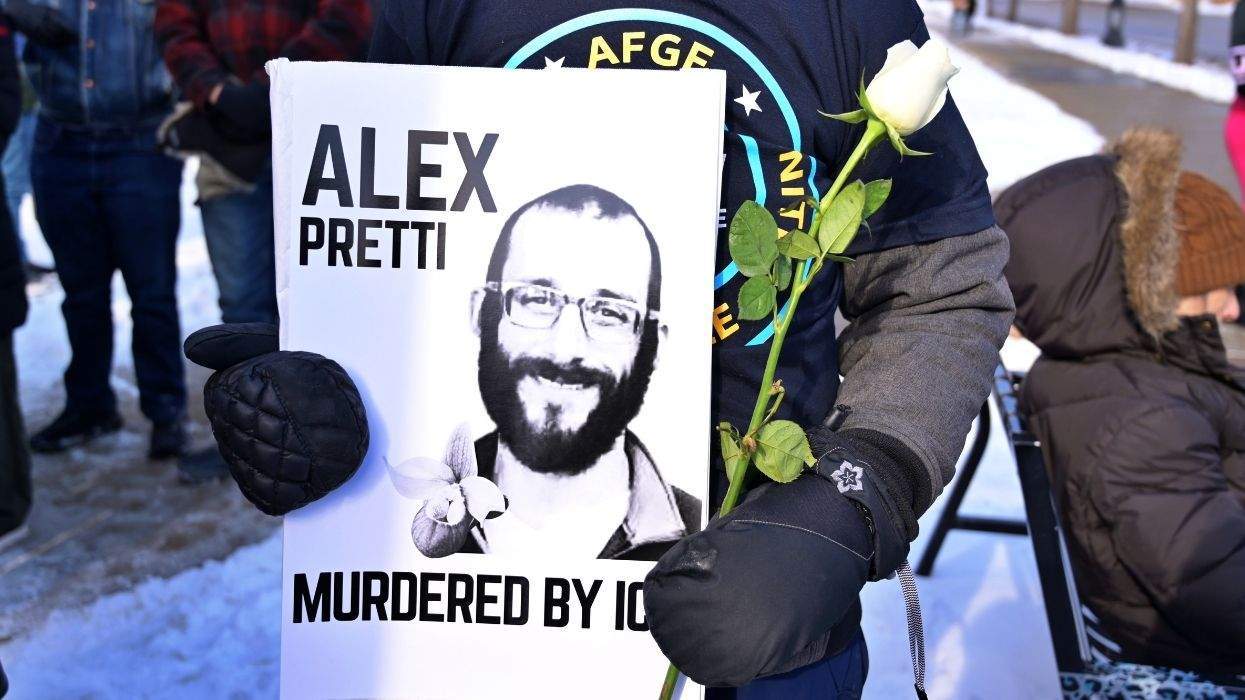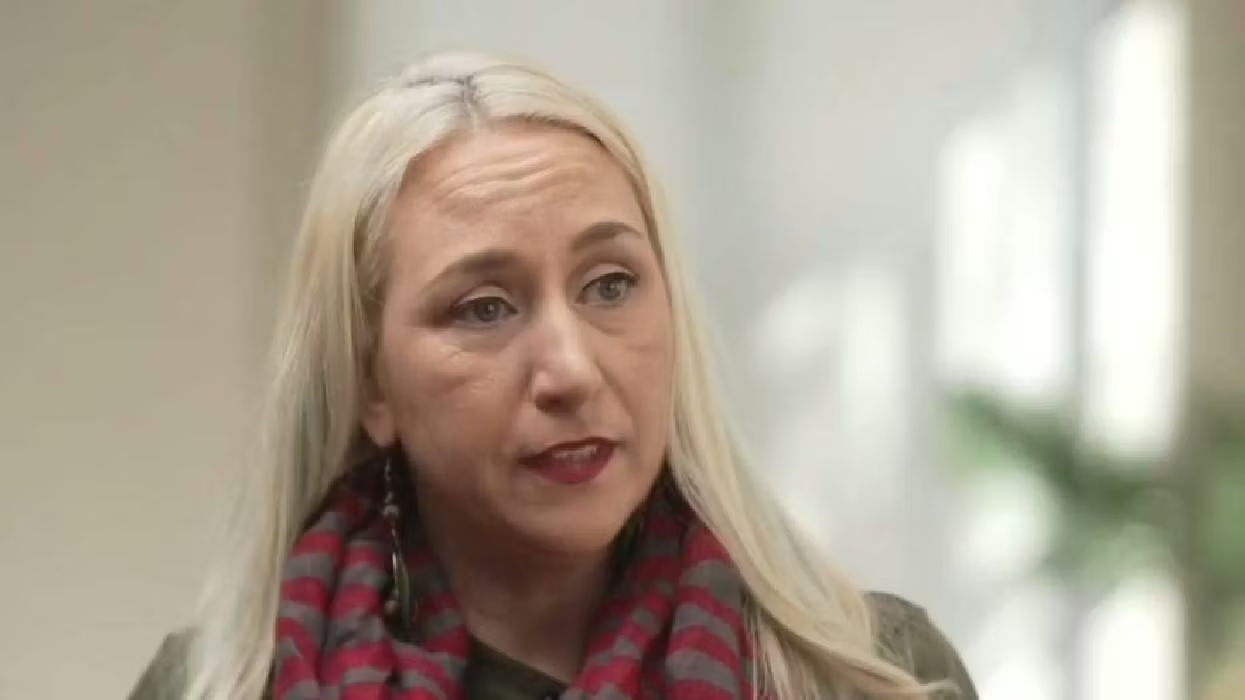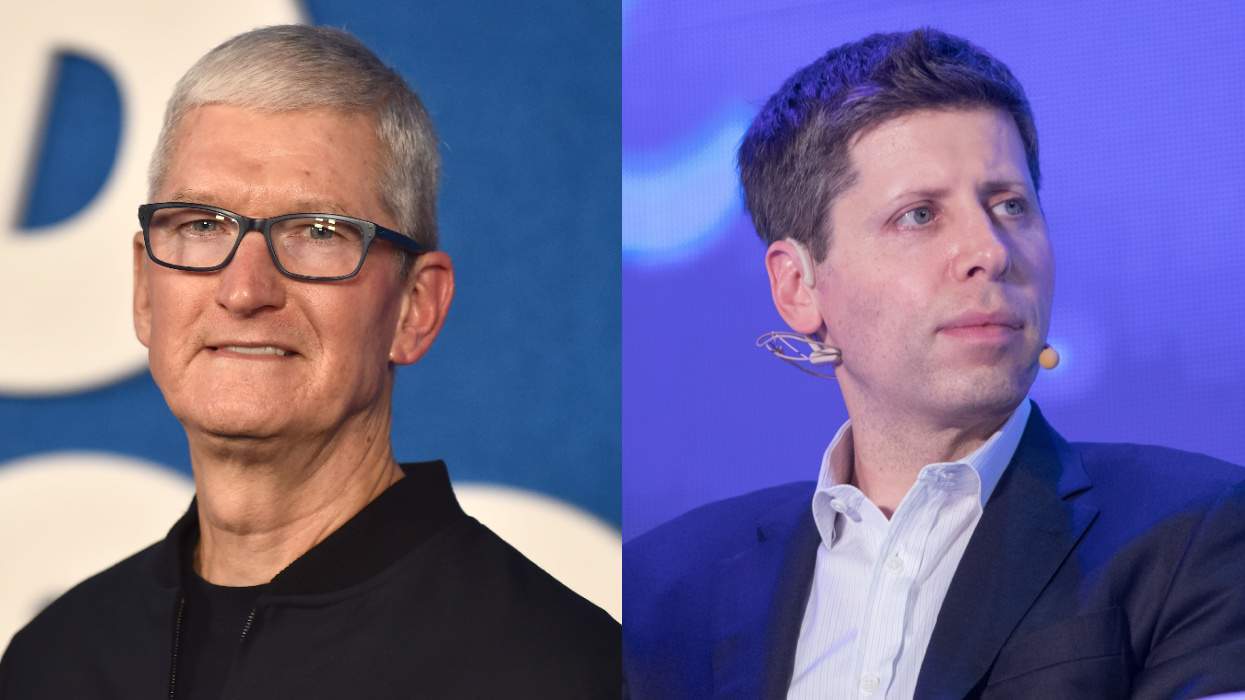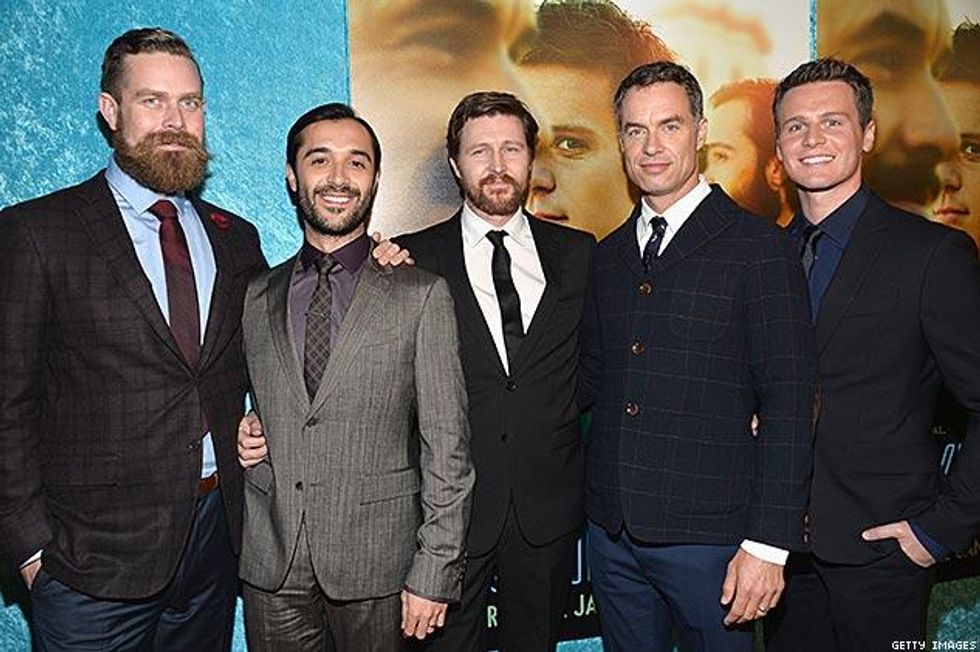
Some snickered, others sniffled when they heard the news in March that Looking, the HBO series about gay friends in San Francisco, would not live to see a third season. The show was beautiful, boring, honest, or rudderless depending on who you asked. But as one of the only shows to center exclusively on gay lives, its absence will certainly leave a void. The positive news: HBO did consent to a film that will give us a few more hours with Patrick, Richie, Dom, Agustin, and Doris. In a frank conversation, the show's creator and frequent writer, Michael Lannan, spoke about the movie and posited what the show's cancellation means for the future of gays in television.
The Advocate: Hi, Michael. What can you tell us about the movie?
Lannan: [Executive producer] Andrew [Haigh] and I have been writing it this summer, and we aren't quite finished, but we're getting close. We're really excited to take the next step in the stories, and I don't know if I'd call it a wrap-up because I don't think anything on Looking has a very tidy ending to it, but I think it's a great final chapter that will send our characters off in their next direction.
It'll be a two-hour movie?
We're not sure yet. It'll probably be around there; hour and a half, two hours.
So it's almost like we're getting three or four more episodes.
I think so, although I can say it probably won't feel like one long episode; it will probably feel like it's own kind of thing.
When will filming happen?
Probably October or November, and it's set to air in March or April of next year.
The show engendered some very strong feelings, pro and con. How did you handle the myriad reactions?
Personally, I don't read a ton [of reviews]. Having said that, I inevitably hear things. The only thing you can do with that is be proud and excited that people are having opinions. The real issue is when people don't talk about you. I was really pleased that we were such a topic of conversation.
Did it feel like some of the criticism received came from people who never even saw the show, or maybe half an episode?
I can't say; I'm not sure, but that wouldn't surprise me. What does stand out in my memory was we put out a trailer a couple months before the show first aired and I remember all the opinions that came from that. It was like, "Oh, great, HBO is making a show about rich gay white men." People had so many ideas about what it was going to be, many of them inaccurate, because it's not just about white people or rich people; in fact, quite the opposite. Especially in our Internet age, people want to have strong opinions whether or not they have a basis for those opinions.
In hindsight, would you still have set the show in San Francisco? That seemed to be a point of contention for some.
I'm really pleased, I think we're all really pleased, how San Francisco played in the show. It was a very intentional idea to place the show somewhere that's already associated with LGBT people. For a number of reasons we wanted that kind of history as the backdrop for these contemporary characters. Because the show was always about how much the world has changed and nowhere more than in San Francisco can you see how quickly the world has changed for LGBT people.
I think San Francisco is a very special place; it's a beautiful place and a lot of people feel ownership over it, and I think that's great and I totally understand it. I think perhaps our portrayal didn't resonate with some of those people, and they took it very personally. We did have our executives at HBO say, "Second to Girls, this show was taken more personally than any show we have."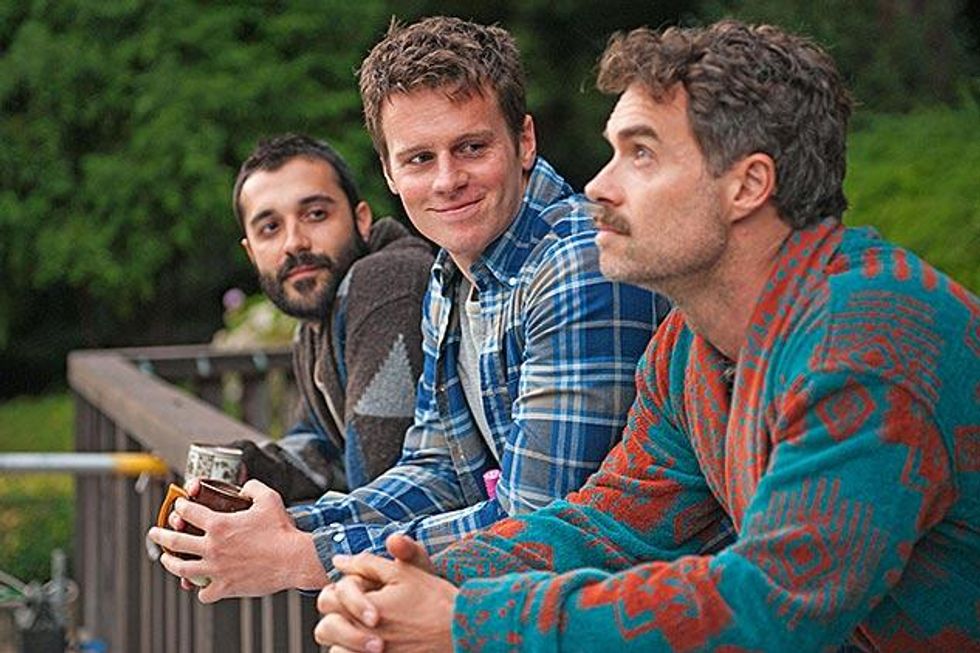
Speaking of HBO, the network's programming president, Michael Lombardo, recently said how difficult it was for him as a gay man to cancel Looking. Did he express that to you?
[Takes a few beats to respond] We were disappointed in the cancellation, obviously. We felt like the show was just hitting its stride and getting to another level. It really hurt when we found out we weren't going forward because we had figured out what the show really was. But HBO has to do what it feels is best for itself and, unfortunately, we're not a part of those discussions. We don't know how they came to that [decision], but they did. We're really grateful for the two seasons we had with them; it was incredible and we're really pleased to do the movie.
In regard to the cancellation, the ratings weren't great but the reviews were, especially as the show progressed. So, were you surprised when you heard it was not going forward?
I didn't know which way it was going, really until I got the call from one of our executives at HBO. Generally the longer you don't hear anything, it's not good news. And it was getting to the point where we should have heard something. But it's Hollywood; one never knows what's happening in the black box. So, I got the call from [an HBO executive] and he expressed his regret and how much he wished the show could continue but for various reasons they couldn't do it over there. I was heartbroken. I wasn't certain it was going forward, but I didn't feel certain it wasn't.
You were hopeful.
Yeah, I was still hopeful. One of the special things about the show is that we became such a family and the actors are such incredible people, as well as talented. And the crew is a really great group. We had so much fun creating this show. So that was a big part of the heartbreak as well as just not being able to continue on with these characters. Into a third season, that is. Obviously, we'll see them in this movie.
Were you tasked with telling the cast?
Yeah, we called all the actors. Myself, Andrew, and [co-executive producer] Sarah Condon. It's really hard, really difficult to tell everyone that we're not doing a third season. But it was nice to be able to tell them we're getting back together for one last hurrah and working together again.
Do you think the cancellation will make other networks wary of picking up an LGBT-themed show?
I have no idea. I think there are some interesting shows on now with LGBT characters in them or about LGBT worlds. I really don't know; I'm not a network executive, I don't think that way. But I think gay people have been or always will be an important part of the culture. I also think LGBT people can be great storytellers, so I'm not worried about it continuing on. I hope television makers and filmmakers continue to fight to get their shows on the air if they're gay-themed. There are so many more great LGBT characters and stories to tell and I'm excited to find out what they are.
I know the concern of some is that Looking was the only show where we were at the forefront, not side characters. We haven't seen many shows like that save for Queer as Folk and The L Word, or maybe Transparent, which are all very different shows than Looking.
This business is weird. Everyone has their idea of what can be successful and what works on TV and in the movies. I think, really, ultimately nobody knows no matter how certain they are of their opinions. Everyone says X will never get made until it gets made. I always chafe at people who say these maxims about what will and won't get made because of the culture, the box office, the ratings, the cancellations. As a creative person, you can't worry about those things. Just keep looking forward and look for the great stories and characters. I'm sure there will be another great show with a gay character in the lead when people crack that and when the circumstances are right.
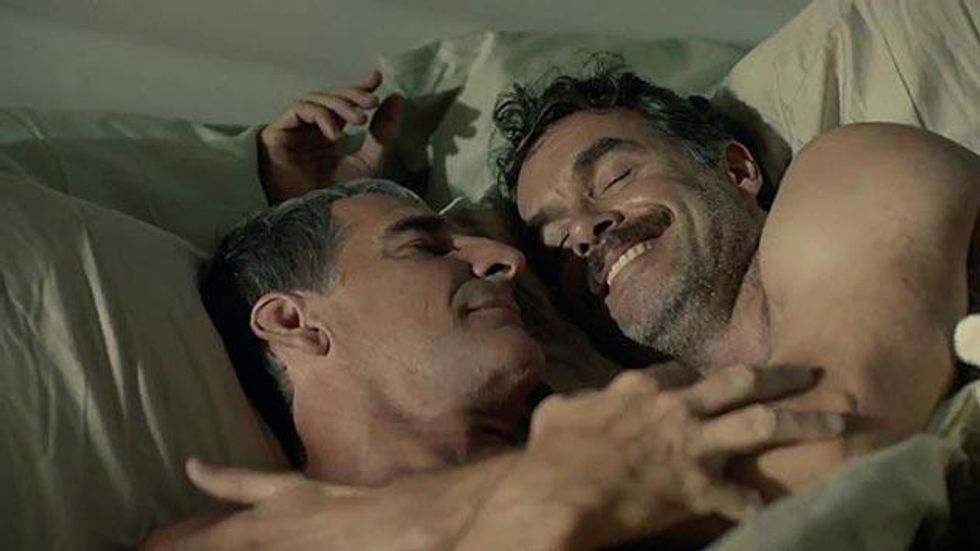
I wonder if LGBT shows, especially ones about relationships and sex, have too small of a built-in audience. Maybe there's a latent homophobia where straight audiences, men mostly, won't watch a show that's too gay.
I actually had someone come up to me at a party in New York. It was a straight man and he said, "I really liked your show but there was nothing for me." He was a little drunk so I didn't take him too seriously. But I didn't know what to say to that.
LGBT audiences have had to identify with stories that have little to do with our love lives.
I love plenty of shows that have nothing to do with my own life. David Simon [creator of The Wire] said it best when he said he wanted to make a show for people who lived in that community and would recognize it and for people who lived so far from that community that they wanted to learn something about it and immerse themselves in it. Perhaps that fellow I met in New York and others like him suffer from a lack of imagination. And I do think the goal of the show was always to be quite frank about sexuality, and I suppose that's uncomfortable for some people. Regarding latent homophobia, sure, that's probably in there somewhere too, but I don't know for sure. We did have plenty of straight people saying they loved the show. A straight couple said something to me about how they liked seeing men talk about something other than nagging girlfriends or solving crime.
Speaking of sex, the tagline of the first season was "Find something real," while the last episode had the protagonist questioning whether his relationship was indeed real. So many characters dealt with issues of monogamy. Do you think open relationships and real relationships are mutually exclusive?
No, I don't think they're mutually exclusive. I do think some people can have open relationships successfully; I don't believe everyone can. Everyone needs to make up their own mind what's right for them and what they're capable of based on their own lives and personalities and sex drives and desires and all those things. I think it's complicated. Probably a lot of people feel they're ready and then get into it and they're not. I know some people who have done it successfully for a really long time and they've created the kind of partnership that works for them, and it is open. They're a lot of great writers on the subject, like Dan Savage. So it's great there are so many conversations about it now. Patrick wasn't sure what he wanted until he was confronted with all these things in episode 10, and it helped clarify what he did want.
Gay open relationships certainly wasn't a subject discussed on TV, so it was refreshing to see that.
Yeah, gay men and women and LGBT people in general are forging new paths that I think are going to be really helpful for the culture at large. One of the reasons we wanted to do the show is because gay people in this time have so many options -- the options that previous generations had like cruising and a more loose idea of partnership. Then there are more traditional ideas in a culture where all gay people can get married, so I think that's very exciting and also very confusing. In our culture, there's this notion we've always had monogamous, one-man, one-woman marriages since the beginning of time. But when you look back in history, it's not nearly as static as some conservative Republicans would have you believe. It's not a biologically ingrained thing in us, and every culture and every individual in that culture has to figure out what works for them.
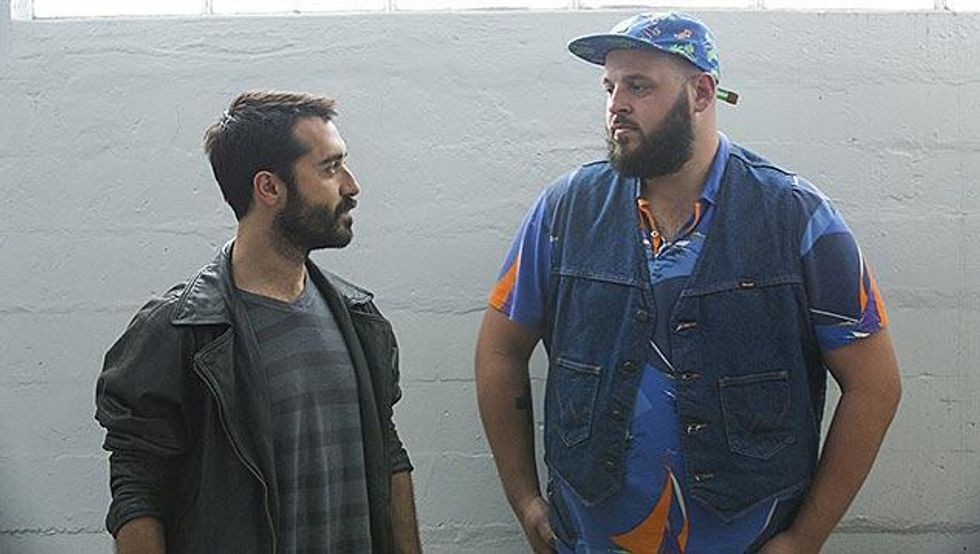
What's your relationship status?
I'm actually newly single.
Will that add some storylines to the movie? How often are personal stories interjected into the plot?
Looking started from a very personal place. Everyone involved has brought personal stories and they've melded together. Andrew certainly brings a lot of his own experience. Our excellent writers have brought their own experiences and that's on display. The actors too have brought their own experiences, and their own pain. So it was really fun to do something personal to all of us and get to exchange stories and identify with each other and challenge each other. That was one of the great aspects of the show.
What's on your agenda after the movie?
I'm definitely focused on the film now but have a couple other projects I'm really excited about. One is a series I'd like to write and a feature project as well. So I'm working on those things in the background, too. I just love television; I love all the possibilities for it, the collaborations. I'm really excited to do another show.
What are some shows now you're loving?
I'm a really big Americans fan.
The Keri Russell show about Russian spies in the '80s, right?
Yeah, it's a really emotional show. It's really about relationships and family and marriage. How they combined that with the spy element is really masterful. And I love Amy Schumer, her satire and biting wit. There's a real warmth beneath it.
Well, I know you have a lot to do, so I won't keep you any longer.
I just wanted to say the Looking fanbase has been amazing. All the outrage and love after the cancellation was very satisfying.
